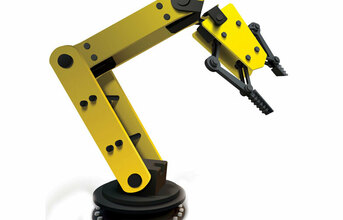
Recently, the opening of a restaurant in Chennai where food is served by robots, has brought the WOW feeling amongst customers. However, robots or automation is not new to India. It has been in the country for quite some time but there is a big leap in this direction across the automotive, pharmaceutical and food and packaging industries in recent times.
In fact, the central budget has identified national programs in the areas of robotics, artificial intelligence (AI) and Industry 4.0. The future of automation in the Indian industry is expected to grow at a CAGR of 25 percent by 2025 as per the survey conducted by CIMA, London.
On the global front, use of robots is immense. For example, Apple manufactures its products in Taiwan with the help of 6000 robots. Similarly BMW and Amazon use robots in their factories and warehouses. Bengaluru based Manipal Hospital uses robots for diagnosis.
3D printing technology and activities related to IoT, Industry 4.0 are giving additional edge to automation and are helping various industry segments such as automotive, jewellery and medical research to a great extent. This raises a question as to what lies in future for the Indian industry. Are we happy about the technological advancements? Or Are we facing a JOB LOSS by these advancements in the Indian manufacturing scenario?
This has given rise to wide spread discussions across different industry segments, committees and government bodies. There is an estimated disruption of the jobs particularly at the grass root level of employees with low skills in coming 10-15 years. In fact, if the data for last four years are to be seen, a job loss of 12-14 percent in the banking and service industries is observed due to technology invasion (AI, cloud computing etc.) Moreover, IT, BPO industries are also undergoing similar situation where low skill jobs are being impacted by automation.
People in the jobs that require low skills such as machine operators, helpers, support staff, office assistant, etc., are likely to face bigger threat provided they don't upgrade themselves.
Looking at the bright side, all such situations also create opportunities.
(Continued on next page)



























